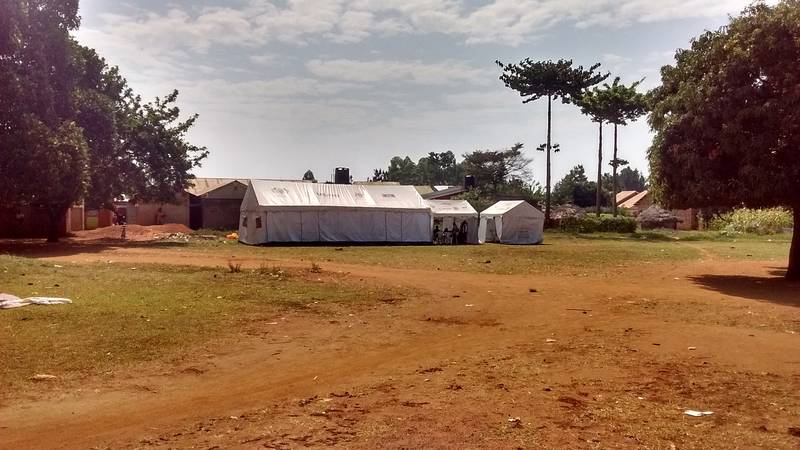USAID tent with “free vaccination” for Ugandan people
Warning: The Dangers of Unregulated Medical Testing in Uganda
In Busia, Uganda, a USAID tent has been set up, offering “free vaccinations” to the local population. However, a disturbing lack of transparency surrounds this initiative, as no information is provided about the contents of these vaccines. This raises serious concerns about the potential health risks posed to the people of Uganda.
It is worth noting that Bill Gates, a prominent supporter of USAID, has publicly expressed his concerns about overpopulation and has suggested that vaccinations could be a solution to this issue. While his intentions may be misguided, the implications are alarming. If vaccinations are being used as a means to control population growth, it would be a gross violation of human rights and a serious threat to public health.
The fact that a significant percentage of people (approximately 1%) may suffer serious adverse effects from these vaccinations is a stark reminder of the potential dangers involved. This is particularly concerning in a region where medical care and follow-up treatment may be limited.
It is also noteworthy that such “free vaccination” tents are rarely, if ever, found in Western countries. This raises questions about why these initiatives are being targeted towards developing nations, where regulatory oversight and medical infrastructure may be weaker. Are these populations being used as test subjects for unproven or unregulated medical interventions?
The people of Uganda, and indeed the global community, have a right to be concerned about the lack of transparency and accountability surrounding these vaccination programs. It is essential that rigorous testing, regulation, and oversight are in place to ensure that any medical interventions are safe, effective, and respectful of human rights.
In conclusion, the unregulated testing of medical interventions on the people of Uganda poses significant risks to their health and well-being. It is crucial that we prioritize transparency, accountability, and rigorous regulation to prevent any potential harm and ensure that medical interventions are safe and effective for all individuals, regardless of their geographical location.


